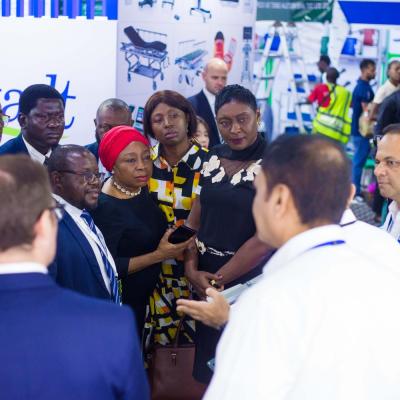Frontpage News (3259)
Why breast milk quality varies among nursing mothers, according to paediatricians
Site Admin A Consultant Pediatrician and Head of Department at the Massey Street Children Hospital, Lagos, Olanike Olutekunbi, says the breast milk of a mother who delivers prematurely differs from that of a mother who delivers at term.
A Consultant Pediatrician and Head of Department at the Massey Street Children Hospital, Lagos, Olanike Olutekunbi, says the breast milk of a mother who delivers prematurely differs from that of a mother who delivers at term.
According to her, mothers’ breast milk varies based on the timing of birth and it continues to change throughout breastfeeding period to meet the needs of the growing child. This corroborates a 1981 study published online by PubMed, a free search engine of references and abstracts on life sciences and biomedical topics.
MPD-4-QED: A Database to Improve the Quality of Care for Maternal and Newborn Health in Nigeria
Written by Super User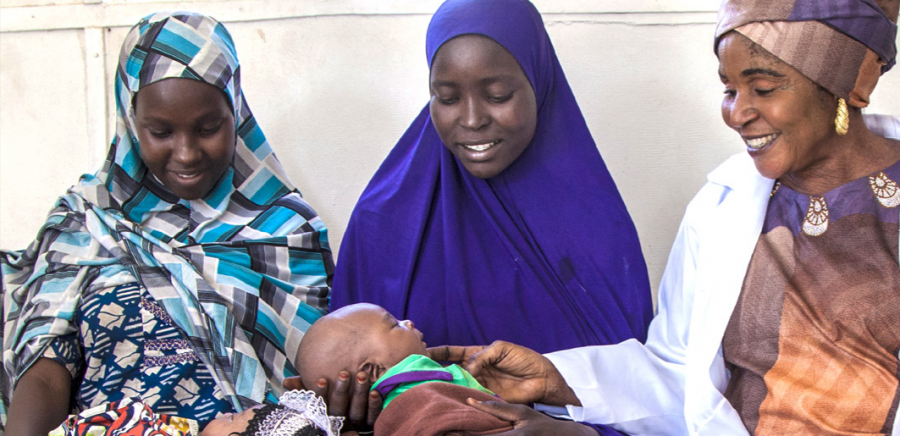 The maternal mortality rate in Nigeria is 512 deaths per 100,000 live births, and according to the 2018 Nigeria Demographic and Health Survey (NDHS), 61 percent of live births do not take place in a health facility. About 20% of global maternal deaths occur in Nigeria and more women especially those aged 15–19 die from pregnancy-related complications.
The maternal mortality rate in Nigeria is 512 deaths per 100,000 live births, and according to the 2018 Nigeria Demographic and Health Survey (NDHS), 61 percent of live births do not take place in a health facility. About 20% of global maternal deaths occur in Nigeria and more women especially those aged 15–19 die from pregnancy-related complications.
Between 2005 and 2015, it is estimated that over 600,000 maternal deaths and no less than 900,000 maternal near-miss cases occurred in the country. Most maternal deaths are preventable, as the healthcare solutions to prevent or manage complications are well known. All women need access to high-quality care in pregnancy, during, and after childbirth.
FG warns nursing mothers, pregnant women against patronising quacks for health care
Site Admin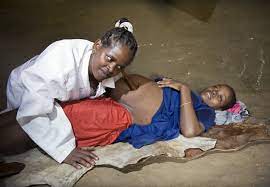 The Federal Government has warned Nigerians, especially nursing mothers and pregnant women, against patronising quack nurses for their health care. The FG also urged nursing mothers and pregnant women to embrace Primary Health Centres built in their domains to avert needless death.
The Federal Government has warned Nigerians, especially nursing mothers and pregnant women, against patronising quack nurses for their health care. The FG also urged nursing mothers and pregnant women to embrace Primary Health Centres built in their domains to avert needless death.
A statement on Tuesday said the Senior Special Assistant to the President on Sustainable Development Goals, Joke Orelope-Adefulire, made the call in Lagos at the inauguration of the Iru Estate Primary Health Centre. She also asked Nigerians to be wary of the kind of people they consult for medical attention.
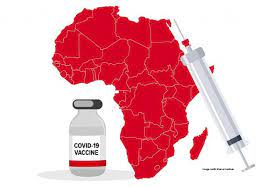 Nearly 90 percent of African countries will miss a target of vaccinating a tenth of their population by September unless they urgently receive more than 200 million jabs, the WHO warned Thursday. “Only seven African countries (out of 54) are likely to reach the target,” the World Health Organization’s director for Africa, Matshidiso Moeti, said in an online briefing.
Nearly 90 percent of African countries will miss a target of vaccinating a tenth of their population by September unless they urgently receive more than 200 million jabs, the WHO warned Thursday. “Only seven African countries (out of 54) are likely to reach the target,” the World Health Organization’s director for Africa, Matshidiso Moeti, said in an online briefing.
At least 225 million jabs are urgently required if the majority of the countries are to meet the deadline, she said. Africans have received less than one percent of the over 2.1 billion doses administered globally, according to the WHO.
One Serious Side Effect Reported In COVID-19 Vaccination In Oyo
Site Admin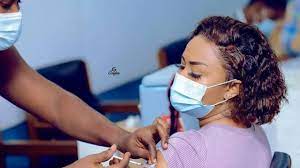 The Oyo State COVID-19 Emergency Operations Centre (EOC) says one person was reported with serious side effects from COVID-19 vaccination in the state“Also, 398 others had mild symptoms such as slight headache and pain at the injection site, while 75,000 people were vaccinated against the infection in the first round of vaccination exercise,” Dr Taiwo Ladipo, EOC Incident Manager said.
The Oyo State COVID-19 Emergency Operations Centre (EOC) says one person was reported with serious side effects from COVID-19 vaccination in the state“Also, 398 others had mild symptoms such as slight headache and pain at the injection site, while 75,000 people were vaccinated against the infection in the first round of vaccination exercise,” Dr Taiwo Ladipo, EOC Incident Manager said.
Preterm babies may have behavioural, learning problems -Study
Site Admin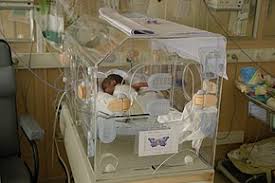 A new study has indicated that preterm babies born before 37 weeks of pregnancy are at risk of developmental challenges that can affect their behaviour and ability to learn. The study published by ScienceDaily found that rates of neurodevelopmental disabilities increased as gestational age decreased.
A new study has indicated that preterm babies born before 37 weeks of pregnancy are at risk of developmental challenges that can affect their behaviour and ability to learn. The study published by ScienceDaily found that rates of neurodevelopmental disabilities increased as gestational age decreased.
According to the researchers, the study also revealed that preterm birth continues to pose a large burden for families, healthcare, and educational systems. They noted that neurodevelopmental disabilities were found not only in children born extremely premature (22-26 weeks) but also in those born moderately premature (between 27 and 34 weeks).
CPR awareness crucial to reducing cardiac arrest deaths –Cardiologist
Site Admin A consultant cardiologist, Dr. Monisola Adanijo, has stressed the need for Nigerians to have the knowledge of cardiopulmonary resuscitation. Adanijo, in an interview with our correspondent, said a lot of people who died suffered from cardiac arrest could have survived if the people around them had the knowledge of cardiopulmonary resuscitation.
A consultant cardiologist, Dr. Monisola Adanijo, has stressed the need for Nigerians to have the knowledge of cardiopulmonary resuscitation. Adanijo, in an interview with our correspondent, said a lot of people who died suffered from cardiac arrest could have survived if the people around them had the knowledge of cardiopulmonary resuscitation.
She said, “Public health awareness is important in preventing deaths from cardiac arrest. People should know about risk factors and how to avoid them, as well as what to do in an emergency situation.
‘Commercial blood donors high risk for spreading viral, infectious diseases’
Site Admin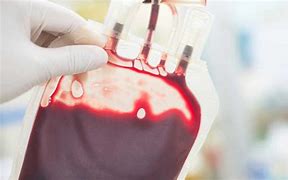 The National Coordinator, National Blood Transfusion Services, Dr. Joseph Amedu, says a survey by the Federal Ministry of Health indicated that 10 percent of all blood transfused in Nigeria may be unsafe, noting that they carry the risk of transmitting HIV, hepatitis B, C and syphilis.
The National Coordinator, National Blood Transfusion Services, Dr. Joseph Amedu, says a survey by the Federal Ministry of Health indicated that 10 percent of all blood transfused in Nigeria may be unsafe, noting that they carry the risk of transmitting HIV, hepatitis B, C and syphilis.
According to Amedu, the bulk of the unsafe blood in the country come from those commercially donated. He added that the risk of transmitting infectious diseases through blood transfusion is higher when blood is procured from commercial donors. Amedu stated this on Monday during the PUNCH Media Foundation webinar series.
More than 1 in 5 of all childbirths now through cesarean section — WHO
Site Admin
The rising rates of caesarean section suggest increasing numbers of medically unnecessary, potentially harmful procedures, the World Health Organisation (WHO) says.
According to new research from the World Health Organization (WHO), caesarean section use continues to rise globally, now accounting for more than 1 in 5 (21%) of all childbirths. This number is set to continue increasing over the coming decade, with nearly a third (29%) of all births likely to take place by caesarean section by 2030, the research finds.
 Public health physicians under the aegis of Association of Public Health Physicians of Nigeria (APHPN) have stressed the need for Nigeria to evolve strategies for resilience and recovery from public health emergencies. This was in view of the challenges facing healthcare in the country and the global community brought on by the COVID-19 pandemic.
Public health physicians under the aegis of Association of Public Health Physicians of Nigeria (APHPN) have stressed the need for Nigeria to evolve strategies for resilience and recovery from public health emergencies. This was in view of the challenges facing healthcare in the country and the global community brought on by the COVID-19 pandemic.
The physicians warned that the pandemic threatens to undermine the gains Nigeria has made in the health sector over decades and stressed the need for the country to put in place sectoral response in pandemic situations.
More...
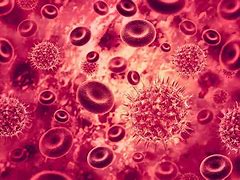 Adequate nutrition represents one of the most important elements for preventing many pathological conditions, including cancer. Diet during pregnancy and childhood can influence a lot of metabolic and physiological functions, and can determine an individual’s susceptibility to, and the development of diseases later in life.
Adequate nutrition represents one of the most important elements for preventing many pathological conditions, including cancer. Diet during pregnancy and childhood can influence a lot of metabolic and physiological functions, and can determine an individual’s susceptibility to, and the development of diseases later in life.
Folic acid is a nutrient that has proved to perform protective and preventive roles for human health maintenance. Folic acid or Vitamin B 9 is the synthetic form of folate, which is naturally found in certain foods such as green leafy vegetables, eggs, grains and dry fruits. This synthetic form, which is more bioavailable, is added to cereal grain products to fortify it, or is used as a form of dietary supplementation.
Nigeria, Others for Clinical Trials on Novel Lassa Fever Vaccine
Site Admin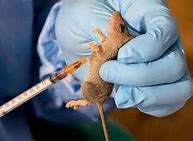 A novel vaccine candidate to prevent Lassa fever is set for second round of clinical trials on adults and children in Liberia, Nigeria and Sierra Leone. This is with the support of Coalition for Epidemic Preparedness Innovations (CEPI) and the European & Developing Countries Clinical Trials Partnership (EDCTP).
A novel vaccine candidate to prevent Lassa fever is set for second round of clinical trials on adults and children in Liberia, Nigeria and Sierra Leone. This is with the support of Coalition for Epidemic Preparedness Innovations (CEPI) and the European & Developing Countries Clinical Trials Partnership (EDCTP).
Both bodies, yesterday, confirmed they jointly awarded €22.8 million to the International AIDS Vaccine Initiative (IAVI) for the exercise. A statement by EDCTP, European Union (EU), CEPI and IAVI stated: “The joint award supports an international collaboration, called Lassa Fever Vaccine Efficacy and Prevention for West Africa (LEAP4WA).
Online voting has commenced for nominees of Nigerian Healthcare Excellence Award 2021
Site Admin Online voting has commenced for the Nigerian Healthcare Excellence Award 2021 (NHEA) for nominees who were able to scale the first round of assessments by the NHEA Jury. Reddington, Lily Hospital, Avon HMO, Sterling Bank, UBA, GE, SynLab and over 100 other organisations and individuals have been nominated.
Online voting has commenced for the Nigerian Healthcare Excellence Award 2021 (NHEA) for nominees who were able to scale the first round of assessments by the NHEA Jury. Reddington, Lily Hospital, Avon HMO, Sterling Bank, UBA, GE, SynLab and over 100 other organisations and individuals have been nominated.
Speaking on the nomination and voting, NHEA Director of Communication, Marketing & Strategy, Moses Braimah, said, “Nomination closed on May 31st, 2021 with so many surprises and excitements.
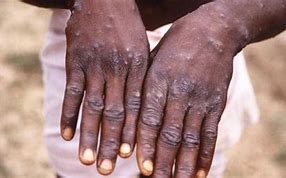 The World Health Organisation (WHO), yesterday, confirmed that the recent Monkeypox outbreak in United Kingdom and Northern Ireland originated from Delta State. The global agency, in a statement, said: “On May 25, 2021, the United Kingdom of Great Britain and Northern Ireland notified WHO of one laboratory-confirmed case of Monkeypox.
The World Health Organisation (WHO), yesterday, confirmed that the recent Monkeypox outbreak in United Kingdom and Northern Ireland originated from Delta State. The global agency, in a statement, said: “On May 25, 2021, the United Kingdom of Great Britain and Northern Ireland notified WHO of one laboratory-confirmed case of Monkeypox.
The patient arrived in the UK on May 8, 2021. Prior to travel, the patient had lived and worked in Delta State, Nigeria.” “On arrival in the UK, the patient remained in quarantine with family due to COVID-19 restrictions. On May 10, the patient developed a rash, beginning on the face.


